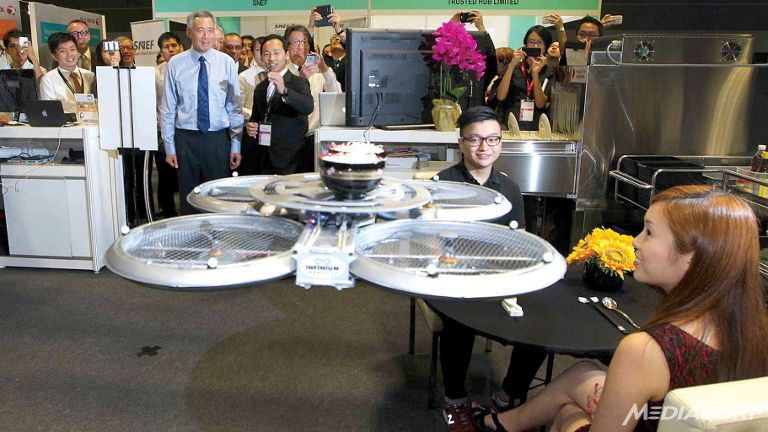It’s not for sure that this time will be different, that automation will lead to technological unemployment on a large scale, but all the ingredients are in place. Such a shift would make us richer in the aggregate, but how do we extend the new wealth beyond the owners of capital? 3-D printers may become ubiquitous and make manufacturing much less expensive, leading to cheaper prices and abundance. But the basic needs of food, shelter, etc. will still be required by those no longer employable in the new arrangement.
Sure, it’s possible thus-unimagined fields will bloom in which humans won’t be “redundancies,” but if they don’t or if there aren’t enough of them? What then?
In a FT Alphaville post, Izabella Kaminska writes of Citi’s latest “Disruptive Innovations” report, which suggests, among other remedies, universal basic income. An excerpt:
Could this time be different, in that where previous manifestations of “robot angst” created new and usually better jobs and sectors to replace those lost, this time there is no automatism for better job creation once existing jobs become redundant?
If that’s the case, Citi says there may indeed be some feedback between weak aggregate demand and growing polarisation of productivity across workers and firms. And this inevitably leads to larger inequalities in income and wealth.
So what’s to be done?
According to Citi a list of potentially desirable policy measures includes:
a) improve and adapt education and training to better align workers’ skills with the demands of firms and technologies,
b) reduce barriers to reallocating resources, including by reducing barriers to labour mobility and simplifying bankruptcy procedures,
c) increase openness to trade and FDI to facilitate knowledge transfers,
d) increase support for entrepreneurship,
e) improve access to credit for restructuring and retraining, and
f) use the tax-transfer mechanism (e.g. through a guaranteed minimum income for all, or an ambitious negative income tax, public funding of health care and long-term care etc.) to support those left behind by technological advances.Note with particular attention that last policy recommendation: a basic income for one and all to help society adjust to the new hyper technological environment, in a way that encourages competition and productivity in laggard firms, and dilutes the power of the winner-takes-all corporates.•






